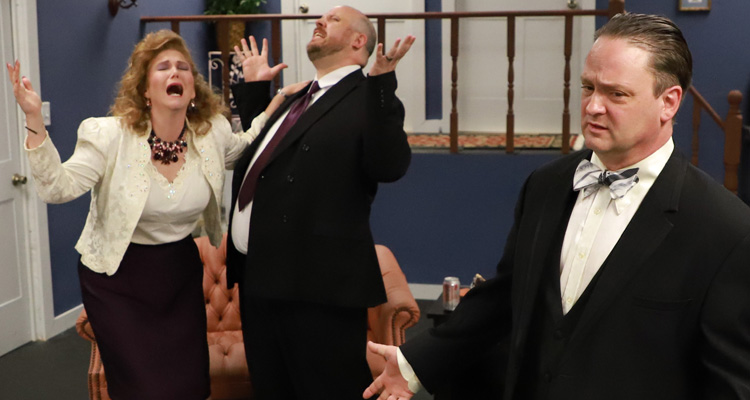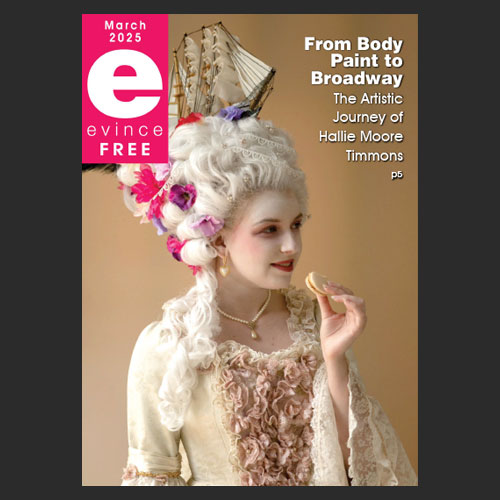Graduating in 1990 from Blackburn College with a degree in chemistry, Steven Harders may be a chemist by day, but is an actor by night. Harders has performed in over 30 shows between his home state of Illinois and here in Virginia. Though he acted throughout childhood and college, Harders had taken a long hiatus from the stage as an adult to focus on his family. That changed when his oldest daughter asked to audition for their local theatre’s production of To Kill A Mockingbird. Whilst accompanying his daughter to the audition, he was asked if he would also like to read for a role, and the rest was history. He was hooked.
Harders has come a long way since his first class play in the first grade, where he had the role of a little girl’s cat and his only line was “meow.” His most memorable production was Little Shop of Horrors, primarily because he got to do this show not once, but twice. While the first time he played Orin Scrivello, DDS, the second time he got to be a puppeteer for the plant, Audrey II, and designed the special effects for the show. He states that this experience “really expanded my theatrical creative and engineering skills and was immensely fun bringing the stage to life.”
Though he is certainly a veteran of the stage, no actor is immune to stage fright. Harders says he sometimes experiences this phenomenon when he is not confident in the material he is presenting- what he refers to as “the age old ‘actor’s nightmare.’” He claims that he also gets stage fright when he focuses his attention on how the audience perceives him, instead of focusing on his role. According to Harders, the best way to combat these dilemmas is to review your lines as much as possible, and to stay in your character’s head and just focus on the story you are telling.
Harders believes that “the absolute most important quality (of an actor) is to be empathetic.” Actors should be able to fully understand and resonate with everything the script calls for their character to say and do. He says to “understand there is always a reason behind every word and deed. Every word has an opportunity to create new levels in the character.” Once that is achieved, the actor can translate those emotions into their body movements to show to the audience what the character is feeling, without even having to speak.
For those considering trying their hand at acting, Harders recommends you learn as much as possible, and not to be discouraged if you do not get cast. “You can be disappointed, but don’t get discouraged- there is a difference.” He also encourages those who are not cast to get involved in other ways. “There are so many facets to a show. Don’t be afraid of the saw, hammer, paint brush, sewing needle, light board, sound board, ushering, ticket taking, etc.. It is all important, needed, and respectable work.” It truly takes a village to put on a show, and there is a role in the theatre for everyone.






